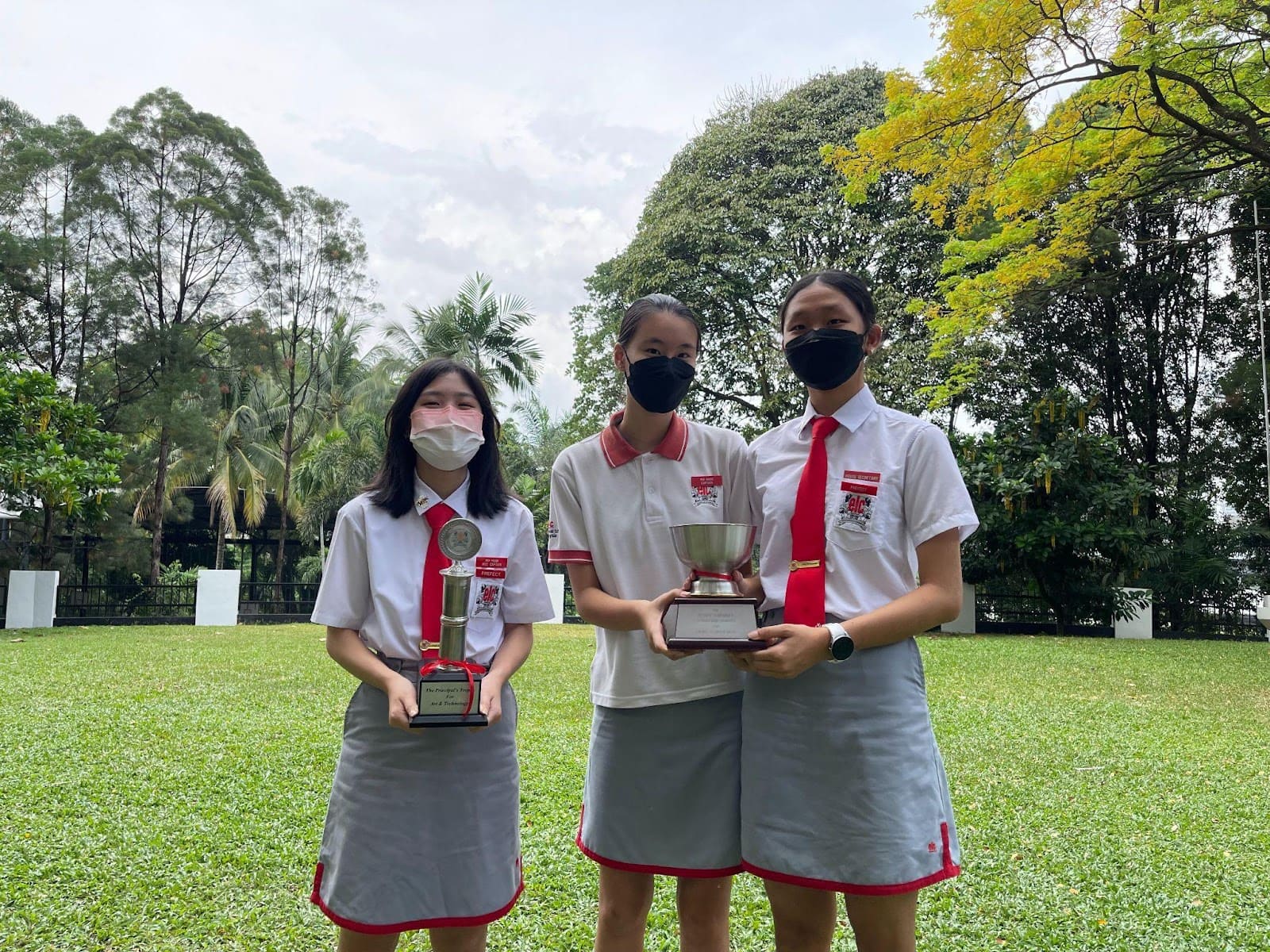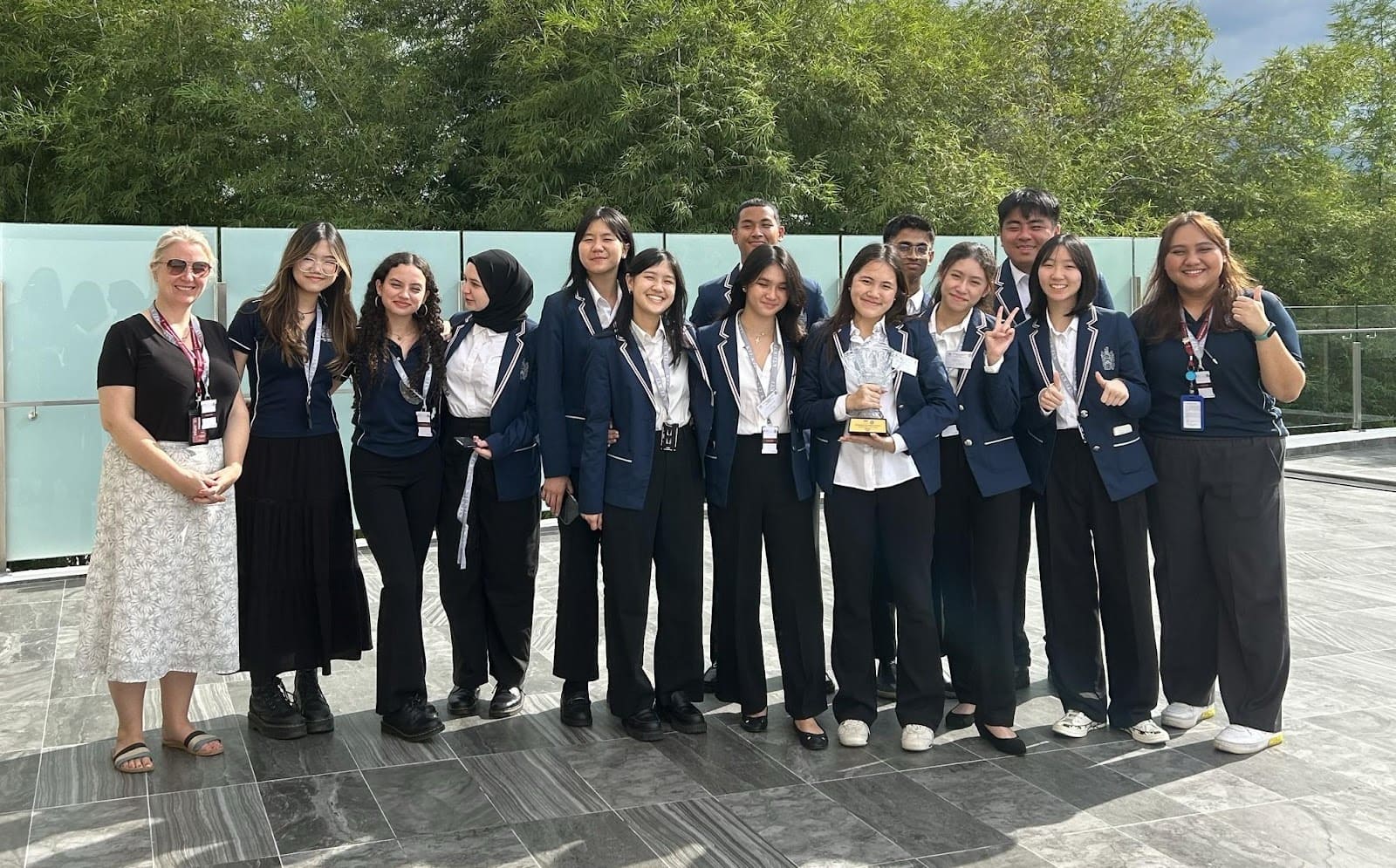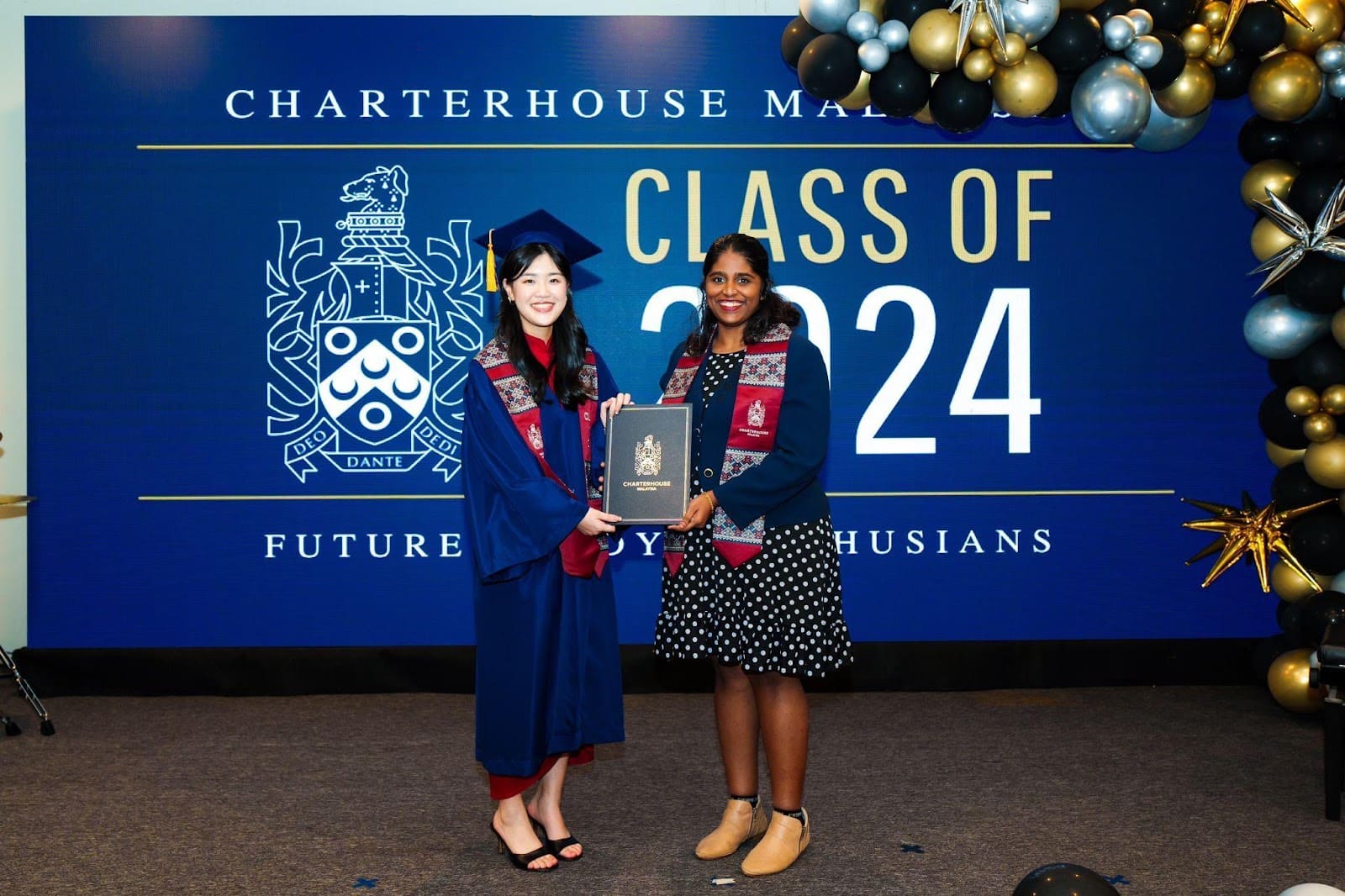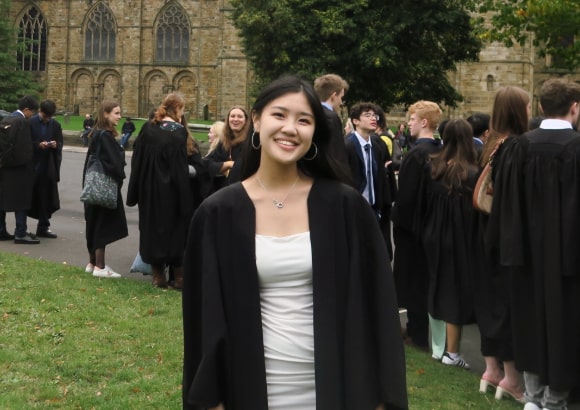Victoria Hew’s Journey from elc and Charterhouse to University Success
 Schooladvisor Team
Schooladvisor TeamMany students take years to figure out what drives them. For some, though, that clarity starts young, shaped by experiences, environments, and personal grit. Victoria Hew is one of those students.
Now a first-year Law student at Durham University, Victoria’s academic path has been both intense and inspiring. She began her education at Sri KDU, following a demanding dual-language syllabus under KSSR and Cambridge. Subjects like Mathematics and Science were taught and tested in both English and Malay, with four major exams a year and project-based assessments from as early as primary school.
"Looking back, I often think this experience played a significant role in building my strong work ethic from a young age. I have always been self-driven and independent, which I credit partly to this rigorous educational foundation."
Her parents never pushed her. They often reminded her to rest. But she’s always been on the move, chasing the next goal.
In Primary 6, she transferred to elc International School, then later enrolled at Charterhouse Malaysia, shaping her path to Durham.

Victoria believes elc played a key role in shaping her character and mindset.
Studying at elc
Victoria Hew credits her time at elc as the foundation of who she is today. The school’s traditional approach — with strict rules and a no-device policy — created a learning environment that felt entirely separate from the outside world. It was only after she moved to Charterhouse, where digital tools like Samsung “flip” boards and laptops were essential, that she truly understood how unique elc had been. But it was this stripped-down setting that gave her the space to develop core values, discipline, and a clear sense of self.
Her very first day at elc is still etched in her memory. Having joined mid-term after being waitlisted, she walked straight into a history test and aced it. As a lifelong history enthusiast, the global perspective of elc’s curriculum thrilled her. It moved beyond local topics to something much broader, sparking her excitement and sense of belonging.
“Everything being in English allowed me to understand and enjoy school in a way I hadn’t before, and I began scoring high on every test.”
The campus left an impression — lush, quiet, and constantly shedding leaves from the towering tree at its centre. It was the kind of place where even teachers didn’t want to retire. Without phones to distract them, students spent their breaks talking, laughing, or running around. That simplicity defined the rhythm of daily life.
“The facilities weren’t advanced, but they were enough. We didn’t need a rock climbing wall or an iMac computer lab to thrive. What elc lacked in modernity, it made up for in its supportive environment, which nurtured growth and creativity in a way that I can only describe as wholesome.”
Pastoral care also played a big role. Victoria often turned to Ms Geetanjali during high-stress periods. Her warmth and support created a much-needed emotional anchor when school life became overwhelming. Victoria still remembers the comfort those conversations brought.
As she moved into secondary school, co-curriculars became a new way for her to grow. Inspired by a house captain named Kathryn, she started stepping out of her shell. She joined the prefect board in Year 10 despite doubts from peers and teachers. Later, as vice house captain, she stepped up when the elected captain didn’t pull her weight. It was a tough experience, but it taught her resilience.
Around the same time, she co-founded the Yearbook Committee and managed virtual meetings during lockdowns, even teaching design software to her team. She also self-studied Economics — earning an A* alongside 8 other A*s.
“To be honest, during my time at elc, I never thought much about university applications. It was always in my mind, but I wasn’t actively aiming for top universities or setting long-term academic goals back then. My main focus was on gaining experience and proving myself.”

Charterhouse Malaysia’s design-thinking projects pushed Victoria to think critically and apply her A-Level knowledge to real-world situations.
Transitioning to Charterhouse Malaysia
Victoria's time at Charterhouse Malaysia began with a jolt. Coming from elc, she faced an intense cultural shock. “The learning culture, teaching style, and the students I encountered there were vastly different from what I was used to.”
Charterhouse’s focus on design-thinking projects encouraged her to go beyond textbook learning and apply A-Level concepts to real-life issues. It was a shift that challenged her mindset and expanded her academic perspective.
The relaxed learning atmosphere was another welcome change. Teachers allowed students to express themselves, creating a space that felt far less rigid than what Victoria was used to. One teacher who stood out was Mr John, her homeroom and Economics teacher in Year 12. His support extended beyond the classroom — helping with university applications, preparing for internship interviews, and even polishing her CV. That kind of one-on-one guidance had a lasting impact on her academic journey.
Victoria also appreciated the school’s quiet and calming physical environment. The campus was designed with focused study in mind, offering plenty of cosy corners from which to work. “In Year 12, I spent most of my time in the school’s virtual golf room—not for playing golf, but because of its astroturf flooring and the warm ambience from the spotlights. That space became my personal retreat, and I wrote many of my best essays there.”
Academically, her passion for subjects like History stood out. While she took History, Economics, Psychology, and the IPQ for A-Levels, it was History that she felt most connected to, even though she scored a B. Rather than dwelling on the grade, she viewed it with perspective, noting the subject’s difficulty and low national A* rate. What mattered more was the understanding she gained and the way it shaped her academic thinking.
Her proudest academic achievement was her IPQ dissertation, which earned her an A. Titled ‘To what extent has Hong Kong been dominated by the PRC’s authoritarian rule despite the 'one country, two systems' policy since 1997?’, the project reflected her strong interest in political history and international relations. The process of researching and writing it helped her build analytical skills that she continues to draw on.
Outside the classroom, Victoria immersed herself in community work and student-led initiatives. Through the Community Partnership program, she collaborated with Safe School for Refugees to run events and tutor students. She also co-founded the Politics and International Relations Society, hosting weekly discussions on global affairs. “This was an enriching experience, as it enhanced my public speaking and critical thinking abilities while allowing me to engage with peers who were just as passionate about global issues as I was.”

Victoria is currently a first-year Law student at Durham University.
How Both Schools Shaped Victoria's Journey to Durham and Beyond
Victoria's journey from ELC to Charterhouse Malaysia and then to Durham University shows how her school experiences helped shape who she is today. At Charterhouse, things didn’t start easily. It was tough socially at first — most people already had their own friend groups, and it took time to find her place. But that experience taught her how to adapt and stay resilient. When she got to Durham, she found it much easier to connect with others. The inter-collegiate system there encouraged students to mix, and she quickly made friends and found her support system.
Academically, Charterhouse gave her a strong foundation. She had already done independent research and academic writing through the IPQ, so university-level work didn’t feel overwhelming. While some first-year students struggled with essays and research, Victoria already had the confidence and skills to keep up with the workload. That made the transition to university smoother.
Her History seminars at Charterhouse also made a big difference. Those sessions, which involved group discussions and debates, were very similar to what she does now at Durham. “Being vocal and participating in discussions is a major part of my current academic life, and my time at Charterhouse helped me develop the skills to contribute meaningfully.”
Outside of school, Victoria stayed active in things that mattered to her. She spent over four years with the 24 Hour Race NGO, starting as a Design Manager and later becoming Marketing Director. Even after stepping down, she continued to help with events and mentor new teams in cities like Bangkok and Singapore. It was a great way to combine her love for design with her passion for a cause, raising awareness about human trafficking.
One of her biggest challenges came in the summer of 2023, when she worked on a state election campaign in Malaysia. She designed everything from billboards to social media posts. It was a fast-paced, high-pressure job, but also one of the most rewarding things she’s done.
She also did a four-month internship with State Legislative Councillor YB Jamaliah Jamaluddin, learning about local politics and helping with community projects. Around the same time, she was offered another internship with MP YB Yeo Bee Yin but turned it down to focus on the election. It was a tough choice, but she knew the hands-on experience would be worth it.
“Both of these experiences reflect how my schooling at elc and Charterhouse has shaped me into the person I am today. elc instilled in me the work ethic and discipline required to balance multiple commitments, while Charterhouse encouraged creativity and critical thinking, both of which were essential in executing these projects.”

